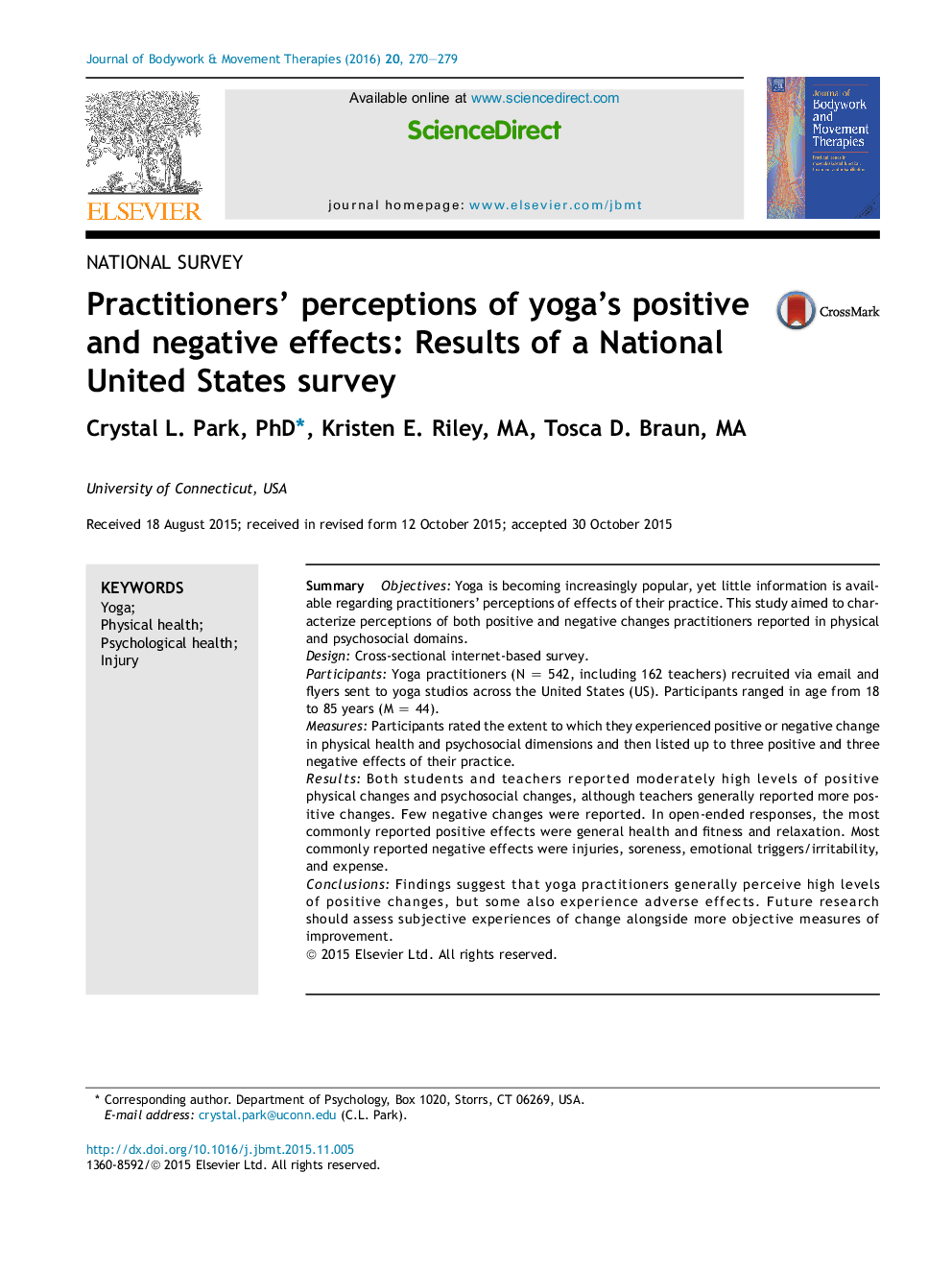| Article ID | Journal | Published Year | Pages | File Type |
|---|---|---|---|---|
| 2618582 | Journal of Bodywork and Movement Therapies | 2016 | 10 Pages |
SummaryObjectivesYoga is becoming increasingly popular, yet little information is available regarding practitioners' perceptions of effects of their practice. This study aimed to characterize perceptions of both positive and negative changes practitioners reported in physical and psychosocial domains.DesignCross-sectional internet-based survey.ParticipantsYoga practitioners (N = 542, including 162 teachers) recruited via email and flyers sent to yoga studios across the United States (US). Participants ranged in age from 18 to 85 years (M = 44).MeasuresParticipants rated the extent to which they experienced positive or negative change in physical health and psychosocial dimensions and then listed up to three positive and three negative effects of their practice.ResultsBoth students and teachers reported moderately high levels of positive physical changes and psychosocial changes, although teachers generally reported more positive changes. Few negative changes were reported. In open-ended responses, the most commonly reported positive effects were general health and fitness and relaxation. Most commonly reported negative effects were injuries, soreness, emotional triggers/irritability, and expense.ConclusionsFindings suggest that yoga practitioners generally perceive high levels of positive changes, but some also experience adverse effects. Future research should assess subjective experiences of change alongside more objective measures of improvement.
